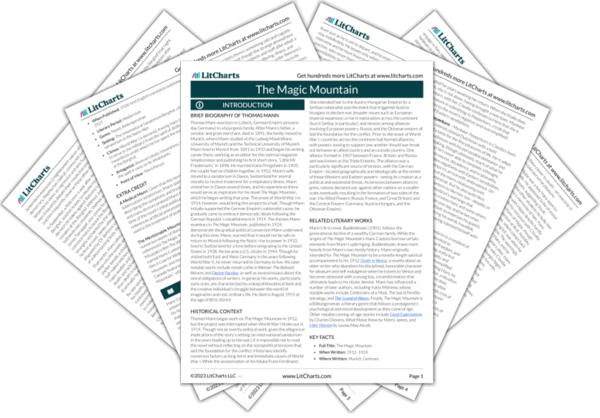Tuberculosis Quotes in The Magic Mountain
It was a cough, apparently—a man’s cough, but a cough unlike any that Hans Castorp had ever heard; indeed, compared to it, all other coughs with which he was familiar had been splendid, healthy expressions of life—a cough devoid of any zest for life or love, which didn’t come in spasms, but sounded as if someone were stirring feebly in a terrible mush of decomposing organic material.
Joachim searched for an answer. “My God,” he said, “they’re so free. I mean, they’re young and time plays no role in their lives, and they may very well die. Why should they go around with long faces? I sometimes think that illness and death aren’t really serious matters, that it’s all more like loafing around, and that, strictly speaking, things are serious only down below in real life. I think maybe you’ll come to understand that in due time, after you’ve been up here with us a little longer.”
“The only healthy and noble and indeed, let me expressly point out, the only religious way in which to regard death is to perceive and feel it as a constituent part of life, as life’s holy prerequisite, and not to separate it intellectually, to set it up in opposition to life, or, worse, to play it off against life in some disgusting fashion—for that is indeed the antithesis of a healthy, noble, reasonable, and religious view. […] Death is to be honored as the cradle of life, the womb of renewal. Once separated from life, it becomes grotesque, a wraith—or even worse. For as an independent spiritual power, death is a very depraved force, whose wicked attractions are very strong and without doubt can cause the most abominable confusion of the human mind.”












